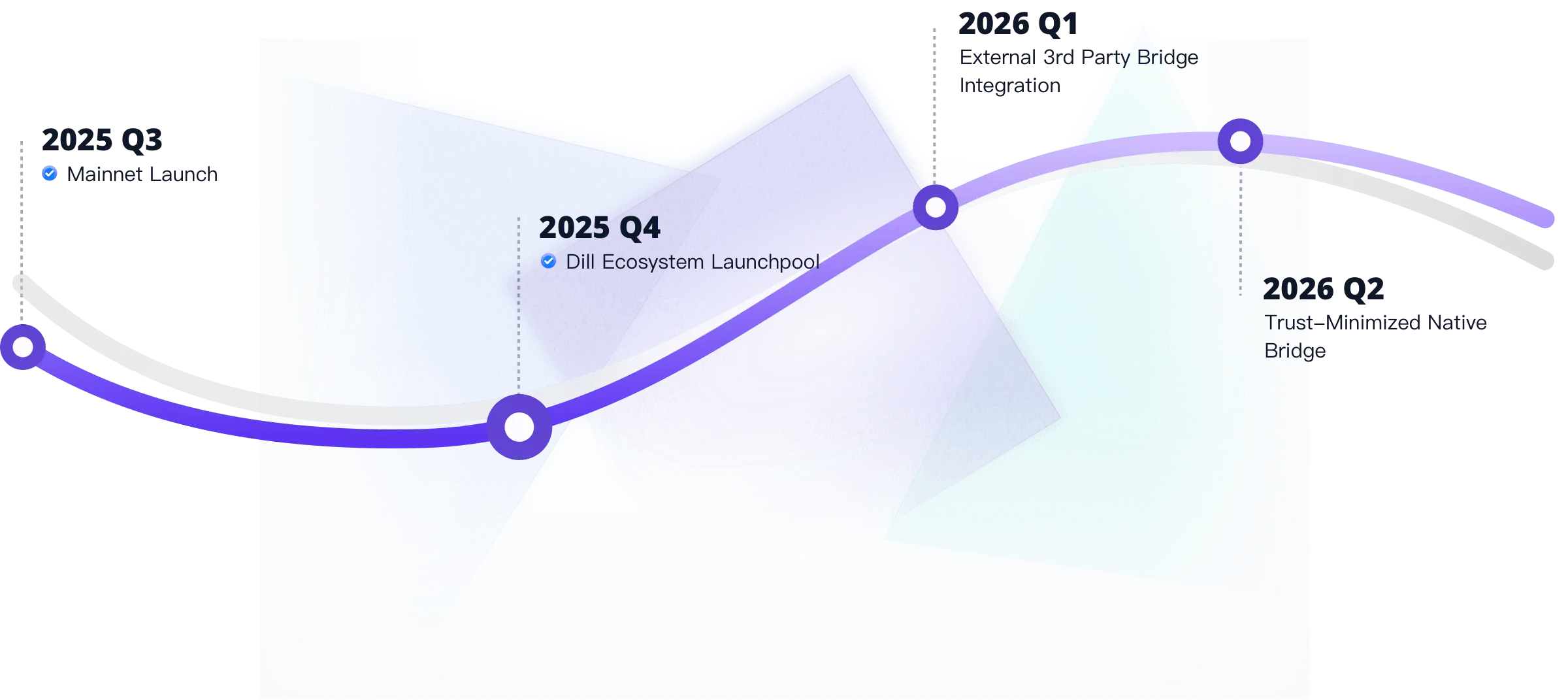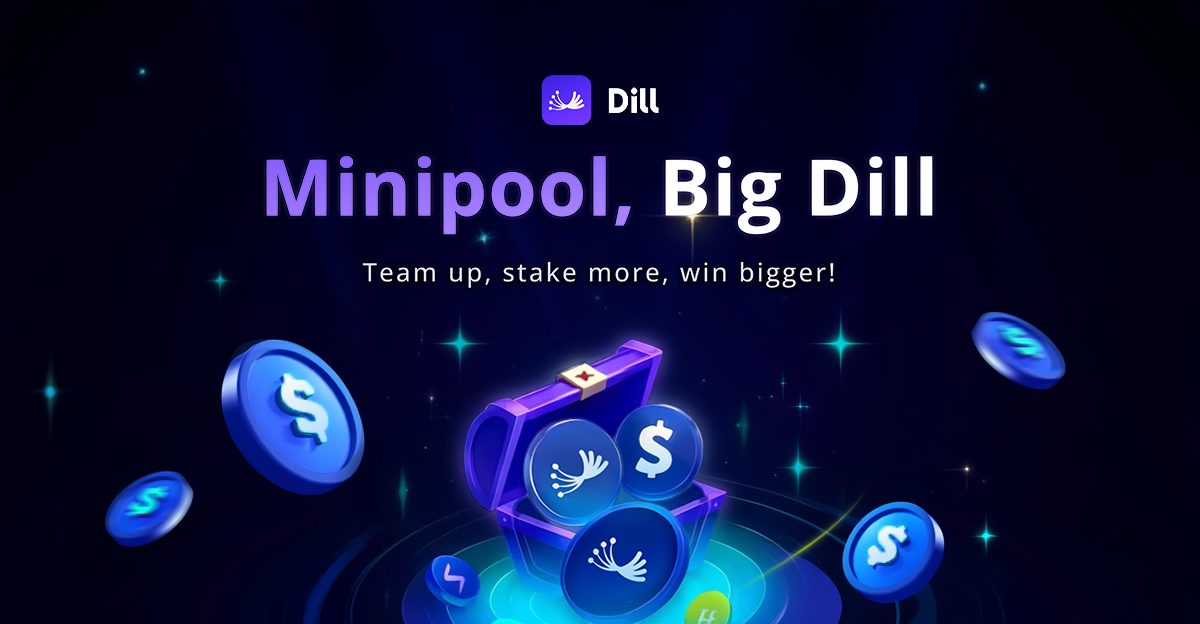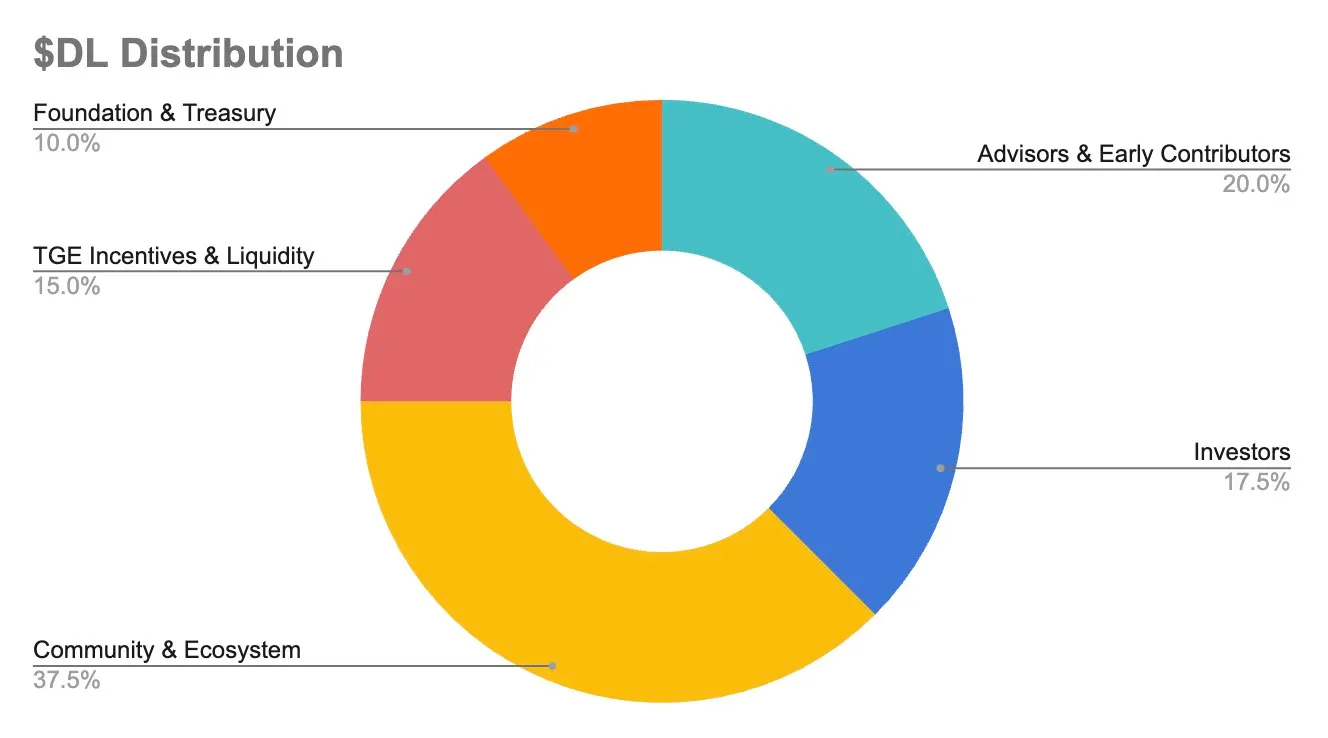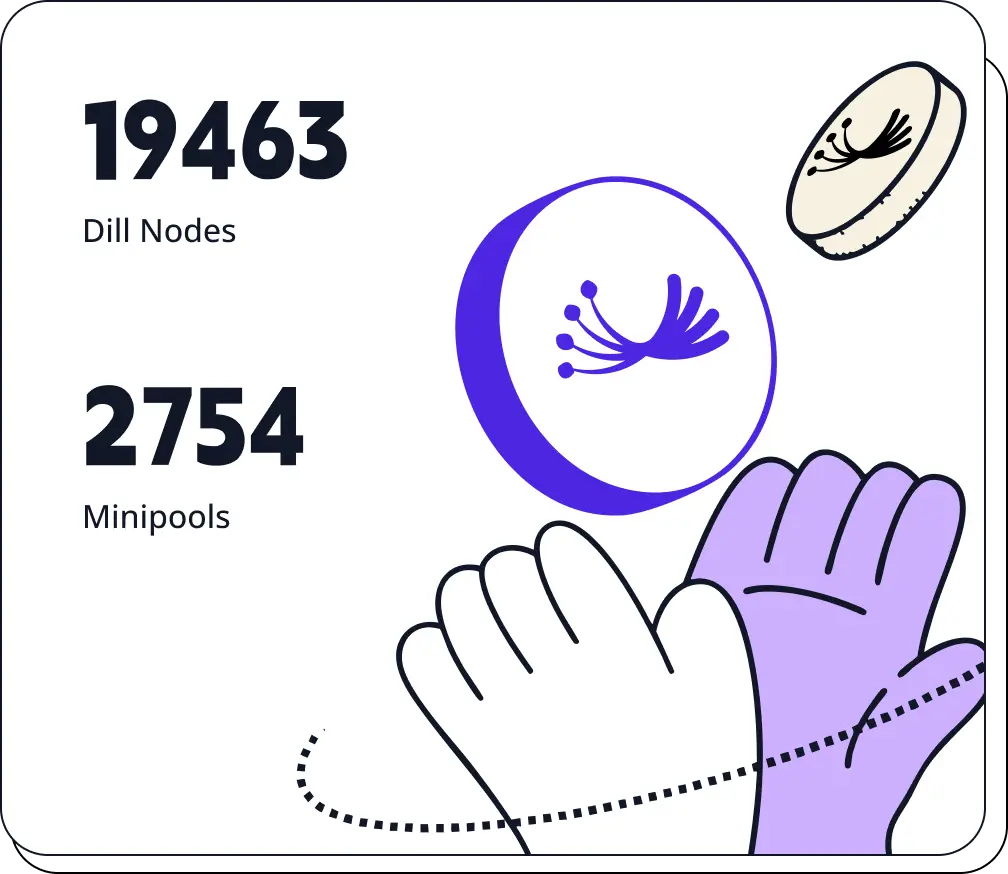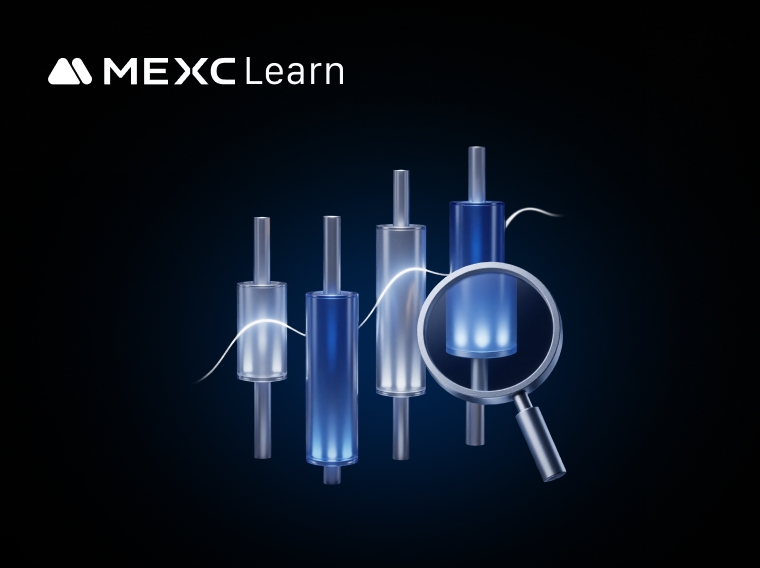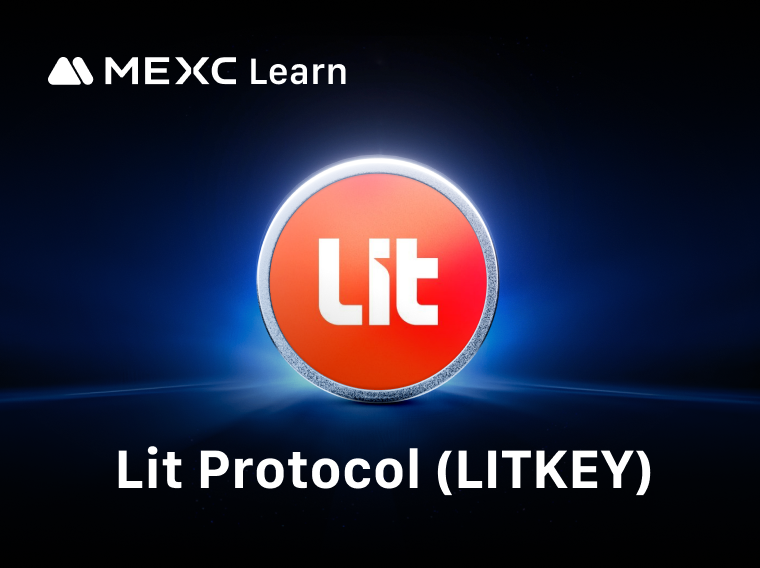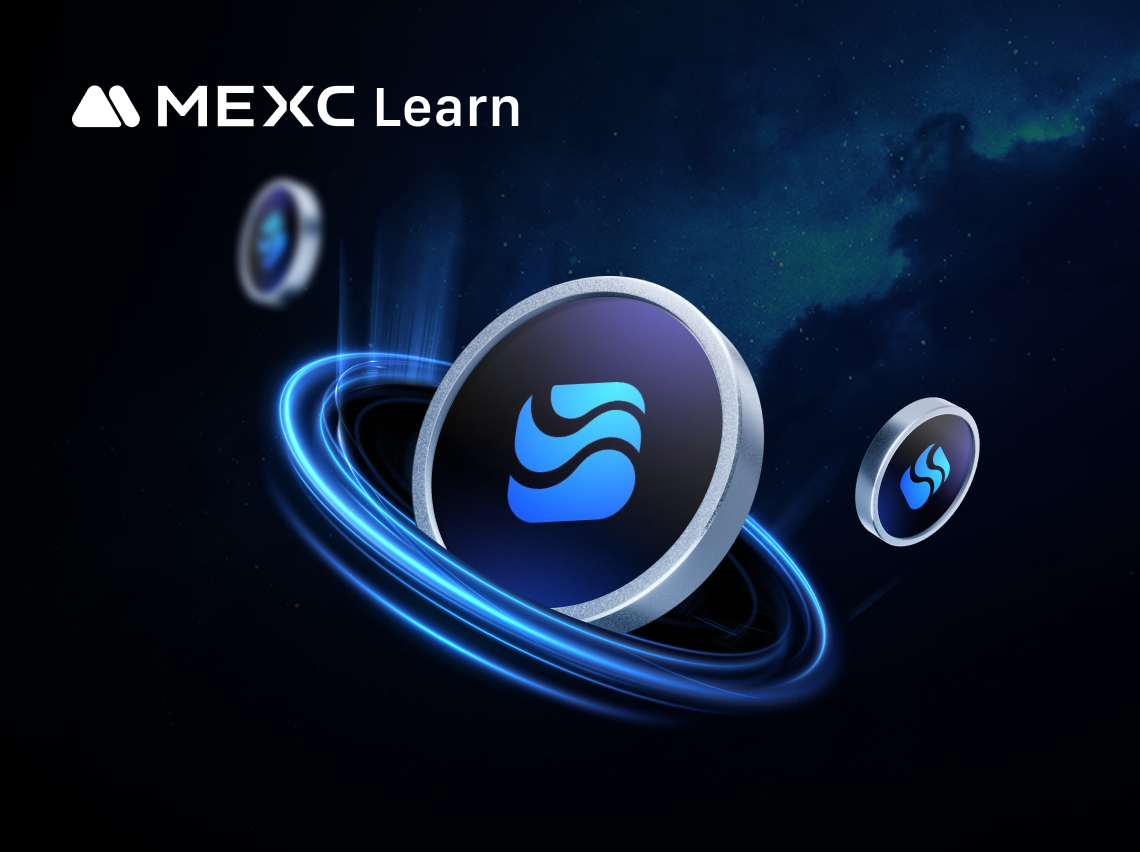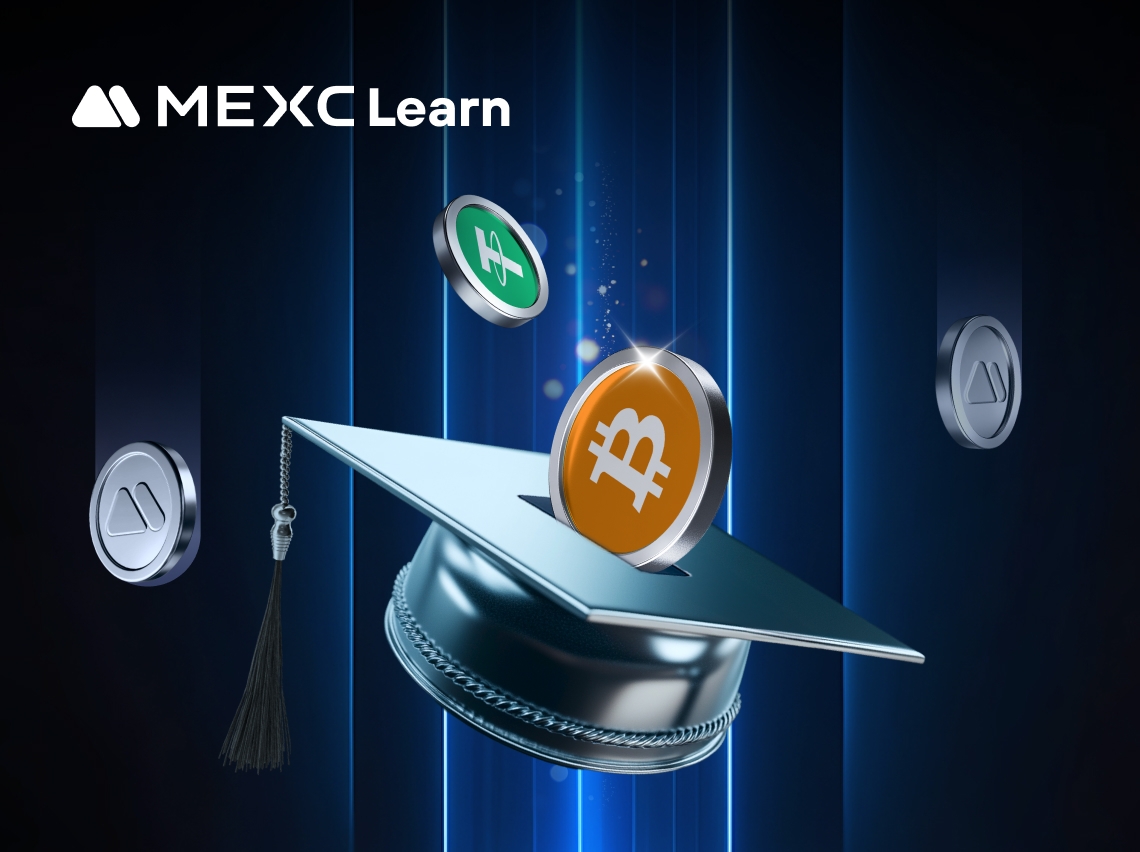In today's rapidly evolving blockchain landscape, scalability remains the industry's most pressing challenge. While most Layer 1 blockchains force applications into rigid frameworks that compromise performance, Dill emerges as a revolutionary solution that refuses these trade-offs.
This comprehensive guide explores Dill's groundbreaking modular architecture, the utility of its native DL token, and how this next-generation blockchain is positioned to enable mass dApp adoption through unprecedented scalability, sovereignty, and decentralization. Whether you're a crypto investor, developer, or blockchain enthusiast, understanding Dill offers insight into the future infrastructure powering Web3's next billion users.
Key Takeaways
Dill is a revolutionary Layer 1 blockchain achieving 800,000 TPS through advanced modular architecture
DL token powers network security with innovative two-tier staking supporting up to 1 million validators
The platform provides sovereign execution environments enabling applications to capture value and customize economics
DL tokenomics features 6 billion fixed supply with strategic distribution rewarding ecosystem participants
Dill Ecosystem Launchpool creates sustainable growth flywheel connecting stakers, applications, and network utilization
Dill is a revolutionary Layer 1 blockchain built on advanced modular architecture and sharding technologies, designed to solve the blockchain trilemma through maximum scalability, sovereignty, and decentralization. As a new paradigm chain, Dill delivers unprecedented performance with up to 800,000 transactions per second while supporting up to 1 million validators—capabilities that position it more than five years ahead of Ethereum's current roadmap. The DL token serves as the native cryptocurrency powering the entire Dill ecosystem. With a fixed supply of 6 billion tokens, DL enables network security through staking, facilitates governance participation, and provides access to innovative features like the Ecosystem Launchpool. Beyond simple utility, DL represents ownership in a revolutionary infrastructure designed specifically for sovereign applications that require dedicated execution environments without compromising on decentralization or performance.
Aspect | Dill | DL Token |
Definition | Layer 1 blockchain platform with modular architecture | |
Purpose | Provides scalable infrastructure for dApps with dedicated execution spaces | Enables staking, governance, and ecosystem participation |
Architecture | Consists of consensus layer, data layer, execution layer, and bridge components | Fixed supply of 6 billion tokens with strategic distribution |
Key Features | 800,000 TPS capability, 1M+ validator support, advanced sharding | Network security, governance rights, Launchpool rewards |
Target Users | Developers building sovereign applications | Stakers, validators, and ecosystem participants |
Value Proposition | Infrastructure for next-generation blockchain applications | Economic incentive mechanism and governance token |
The fundamental challenge facing blockchain technology is the inability to achieve scalability, security, and decentralization simultaneously. Traditional solutions force compromises: Ethereum prioritizes decentralization but struggles with scalability, while high-performance chains like Solana achieve throughput by sacrificing decentralization. Dill's modular architecture eliminates these trade-offs by optimizing each component independently while maintaining unified security guarantees.
Current blockchain ecosystems trap applications in rigid, one-size-fits-all frameworks that limit customization and value capture. Applications lose sovereignty as they transition from dedicated resources to shared infrastructure, creating the "fat protocols, thin applications" phenomenon where platform limitations constrain application functionality and economics. This becomes particularly problematic as AI agents and high-frequency applications require specialized execution environments.
Existing blockchains cannot support the computational demands of next-generation applications. With AI agents expected to generate massive on-chain activity and gaming applications requiring real-time responsiveness, current infrastructure creates bottlenecks that prevent mass adoption. The industry has built foundational technology but lacks economic models designed for infrastructure-driven growth rather than early-stage speculation.
Dill emerged from the recognition that blockchain technology had reached a critical inflection point: while performance breakthroughs indicated readiness for large-scale adoption, existing ecosystem growth mechanisms remained fundamentally limited. The project was founded on the principle that different blockchain functions could be optimized independently while maintaining unified security and decentralization guarantees—a philosophy that led to Dill's revolutionary modular approach.
The development team identified that applications increasingly demanded sovereignty and customizability that general-purpose blockchains couldn't provide. Projects like Uniswap, which incurs over $1 billion in gas fees annually on Ethereum, demonstrated the need for dedicated execution environments that could capture value while providing features like MEV redistribution and transparent transaction ordering—capabilities impossible on traditional shared infrastructure.
With backing from prominent institutions including Binance Labs participation in Season 7 and support from established validators and ecosystem partners, Dill positioned itself to become the infrastructure foundation for Web3's next evolutionary phase, targeting the gap between technological capability and sustainable ecosystem growth.
Dill achieves unprecedented throughput of up to 800,000 TPS through sophisticated modular design and Full Danksharding implementation. The platform utilizes 2D Erasure Coding with 64 subnets supporting a maximum of 512 blobs, providing 5MB/s scalability—significantly outperforming Ethereum's roadmap targets. This technical architecture enables real-time applications while maintaining cryptographic security guarantees.
The innovative dual-layer validation mechanism democratizes participation while ensuring economic security. Light validators with lower barriers enable solo stakers to participate in network security, while heavy validators provide enhanced economic guarantees within single slots. This system supports up to 1 million validators—creating unprecedented decentralization without compromising performance or security.
Each application receives dedicated execution environments with complete control over gas fees, transaction ordering, and economic parameters. This sovereignty enables applications to capture execution layer value while implementing custom features like built-in MEV redistribution, millisecond-level pre-confirmations, and specialized consensus mechanisms—capabilities impossible on shared general-purpose blockchains.
Dill implements Data Availability Sampling (DAS) with KZG polynomial commitments and subnet sharding to ensure data integrity across the distributed network. Light clients can verify specific data cells without downloading complete blocks, enabling efficient validation while supporting large block sizes necessary for high-throughput applications.
Dill provides an ideal environment for AI agent interactions through its decentralized consensus mechanism and programmable infrastructure. Agents can create autonomous execution spaces with full control over economic parameters, enabling 24/7 interactions using DL token as common currency. The platform's scalability supports human-to-human, human-to-agent, and agent-to-agent interactions while eliminating bridge dependencies for seamless value exchange.
The gaming industry faces significant technical hurdles with fewer than 15% of blockchain games operating fully on-chain due to scalability and performance limitations. Dill addresses these challenges through dedicated execution spaces and high throughput, enabling real-time updates for high-tick-rate games like MMORPGs. The platform's unified base layer creates shared state accessibility, allowing seamless asset movement between games while eliminating fragmented economies.
Traditional DeFi applications suffer from network congestion and unpredictable gas costs that limit sophisticated trading strategies and automated market making. Dill's dedicated execution environments enable DeFi protocols to implement custom consensus mechanisms, predictable fee structures, and MEV redistribution systems that create fairer trading conditions while maintaining decentralized security guarantees.
DL token maintains a fixed maximum supply of 6 billion tokens strategically allocated to drive sustainable ecosystem growth while rewarding community participation:
- TGE Incentives & Liquidity — 15% (900M tokens): Exchange liquidity support and community airdrops, with 3% allocated specifically for early Dill testnet contributors through phased release (50% at TGE, 40% after 30 days, 10% after 90 days)
- Ecosystem & Community — 37.5% (2.25B tokens): Largest allocation incentivizing core participants including stakers, active users, and strategic partners driving network utilization
- Foundation & Treasury — 10% (600M tokens): Protocol development funding through grants, integrations, and developer incentives ensuring continuous innovation
- Early Contributors & Advisors — 20% (1.2B tokens): Rewards for founding team, builders, and advisors contributing to Dill's revolutionary infrastructure development
- Investors — 17.5% (1.05B tokens): Strategic investor allocation providing long-term value, guidance, and ecosystem connections
The token release schedule balances immediate liquidity with long-term commitment. Ecosystem and Foundation allocations unlock 10% at TGE with remaining tokens distributed over 60 months, while Early Contributors and Investors face 1-year cliffs followed by 36-month and 30-month vesting periods respectively. This structure ensures token supply growth aligns with network adoption while reducing speculative pressure.
DL token holders secure the Dill network through the innovative two-tier staking system, earning rewards from transaction fees while participating in validator consensus. The dual-layer approach allows both light stakers (solo participants) and heavy stakers (institutions) to contribute network security, with enhanced yields available during Launchpool partnerships that create additional value for committed stakers.
Applications deploying on Dill use DL tokens to access dedicated execution spaces and premium features including advanced sharding capabilities and cross-application interoperability. The token enables custom gas token functionality within dedicated application spaces, allowing projects to create specialized economic models while maintaining connection to the broader Dill ecosystem.
DL token holders participate in protocol governance by voting on network upgrades, parameter changes, and ecosystem initiatives. This includes proposing new Launchpool partnerships, influencing fee structures, and determining reward distribution mechanisms that shape the platform's evolution. Governance participation ensures the network develops according to stakeholder interests rather than centralized control.
The Dill Ecosystem Launchpool enables DL stakers to earn rewards in tokens from new applications launching on the platform. This mechanism creates a sustainable flywheel where successful projects increase network utilization, generating higher staking rewards that attract more validators and expand capacity for future launches—transforming traditional token distribution into ongoing ecosystem value creation.
Dill's roadmap focuses on systematic ecosystem expansion through key milestones that establish comprehensive infrastructure for sovereign applications. The 2025 Q3 Mainnet Launch initiates core platform operations, followed by Q4 Ecosystem Launchpool deployment that creates sustainable growth mechanisms for application adoption. The 2026 roadmap includes External 3rd Party Bridge Integration for enhanced interoperability and Trust-Minimized Native Bridge implementation for seamless cross-chain functionality.
Beyond technical development, Dill aims to demonstrate how blockchain infrastructure can support mass adoption through practical application success stories. The platform's unique combination of scalability, sovereignty, and decentralization positions it to become the foundational layer for next-generation Web3 applications, from AI-powered autonomous systems to fully on-chain gaming experiences that require specialized execution environments.
The project's long-term vision centers on creating a self-sustaining ecosystem where network effects compound through the Launchpool flywheel—successful applications drive network utilization, increase staking rewards, attract more validators, and expand capacity for future innovations, establishing Dill as essential infrastructure for blockchain's evolution toward mainstream adoption.
Dill competes directly with established Layer 1 platforms including Ethereum, Solana, and emerging modular solutions like Celestia. Each approach represents different trade-offs in the blockchain trilemma, but Dill's architecture uniquely addresses limitations that constrain competitor solutions.
vs. Ethereum: While Ethereum maintains strong decentralization, its rollup-centric scaling approach creates ecosystem fragmentation and reduces the platform's influence over applications. Dill achieves equivalent decentralization (1M+ validators) while delivering significantly higher throughput (800,000 TPS vs Ethereum's ~25 TPS base layer) through unified architecture that avoids Layer 2 fragmentation.
vs. Solana: Solana achieves impressive throughput but sacrifices decentralization with validator counts limited to hundreds rather than millions. Dill delivers comparable performance (800K TPS vs Solana's theoretical maximum) while supporting 1000x more validators through innovative two-tier staking that democratizes participation without compromising security.
vs. Modular Solutions: Projects like Celestia focus purely on data availability, requiring additional layers for execution and settlement. Dill provides integrated modularity with unified security guarantees, eliminating the complexity and fragmentation associated with multi-chain modular stacks while maintaining the optimization benefits of specialized components.
Unique Value Proposition:
Dill stands alone in combining maximum scalability, sovereignty, and decentralization without requiring trade-offs. The platform's application-specific execution environments enable value capture and customization impossible on shared infrastructure, while the two-tier validation system creates sustainable decentralization that scales with network growth—advantages no current competitor provides simultaneously.
DL token is available for trading on MEXC, a premier cryptocurrency exchange offering comprehensive trading services with robust security measures. MEXC provides an ideal platform for acquiring DL tokens through its user-friendly interface, competitive fee structure, and deep liquidity that ensures efficient trade execution with minimal slippage.
The exchange offers advanced trading features including spot trading, futures contracts, and staking options that enable DL holders to participate in network security while earning rewards. MEXC's established reputation and regulatory compliance create a secure environment for both novice and experienced traders looking to participate in Dill's revolutionary blockchain ecosystem.
Step-by-Step Purchase Guide on MEXC:
- Create MEXC Account: Visit the official MEXC website and complete registration with email verification.
- Complete KYC Verification: Submit required identification documents to meet regulatory compliance standards.
- Deposit Funds: Transfer USDT or other supported cryptocurrencies to your MEXC wallet.
- Locate DL Trading Pair: Search for "DL/USDT" in the exchange's trading section.
- Place Your Order: Choose between market order (immediate purchase) or limit order (set desired price).
- Secure Your Tokens: Transfer DL tokens to a personal wallet for enhanced security or keep in MEXC for staking opportunities.
Dill represents a fundamental breakthrough in blockchain architecture by solving the trilemma through innovative modular design that achieves maximum scalability, sovereignty, and decentralization simultaneously. With 800,000 TPS capability, support for 1 million validators, and dedicated execution environments for applications, Dill provides infrastructure that existing platforms cannot match.
The DL token creates sustainable economic incentives through staking rewards, governance participation, and Ecosystem Launchpool benefits that align stakeholder interests with network growth. As blockchain technology approaches mass adoption, Dill's revolutionary approach to application sovereignty and infrastructure optimization positions it as essential foundation for Web3's next evolutionary phase.
For investors, developers, and blockchain enthusiasts seeking exposure to next-generation infrastructure, Dill offers compelling advantages that address current industry limitations while creating new possibilities for decentralized application development and ecosystem growth.
Ready to amplify your earnings while exploring innovative blockchain projects like Dill? MEXC's Referral Program offers an exceptional opportunity to earn up to 40% commission on your friends' trading activities. Simply share your referral code, invite friends to discover MEXC's comprehensive trading platform, and automatically receive rewards when they complete transactions. With instant commission distribution and up to 1,095 days of earning validity, this program transforms your network into sustainable passive income. Whether you're a casual trader or blockchain enthusiast with broader reach, MEXC's referral system provides compelling returns while introducing others to cutting-edge projects and premium trading services.

